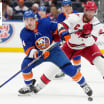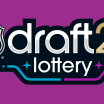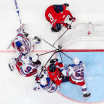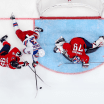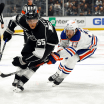The 2019 Stanley Cup Playoffs are here and the road to the championship is not going to be easy. The Western Conference doesn't have one standout, dominant club this season, which means the path appears wide open for the team that is playing well at the right time.
Here are some key statistics to consider for the Western Conference First Round:
Behind the Numbers: Western Conference playoff teams
Key statistics for Flames-Avalanche, Sharks-Golden Knights, Jets-Blues, Predators-Stars series
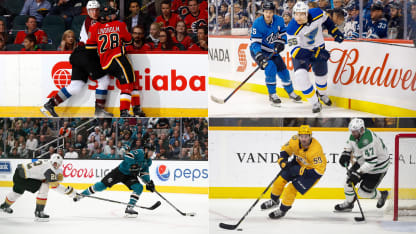
The final power rankings of the regular season
COL@SJS: Jones stones MacKinnon at the doorstep
WPG@BOS: Morrissey strikes quickly on the power play
NSH@BUF: Subban hammers slap shot past Hutton
WPG@COL: Johnson wins it in OT after Avalanche clinch

